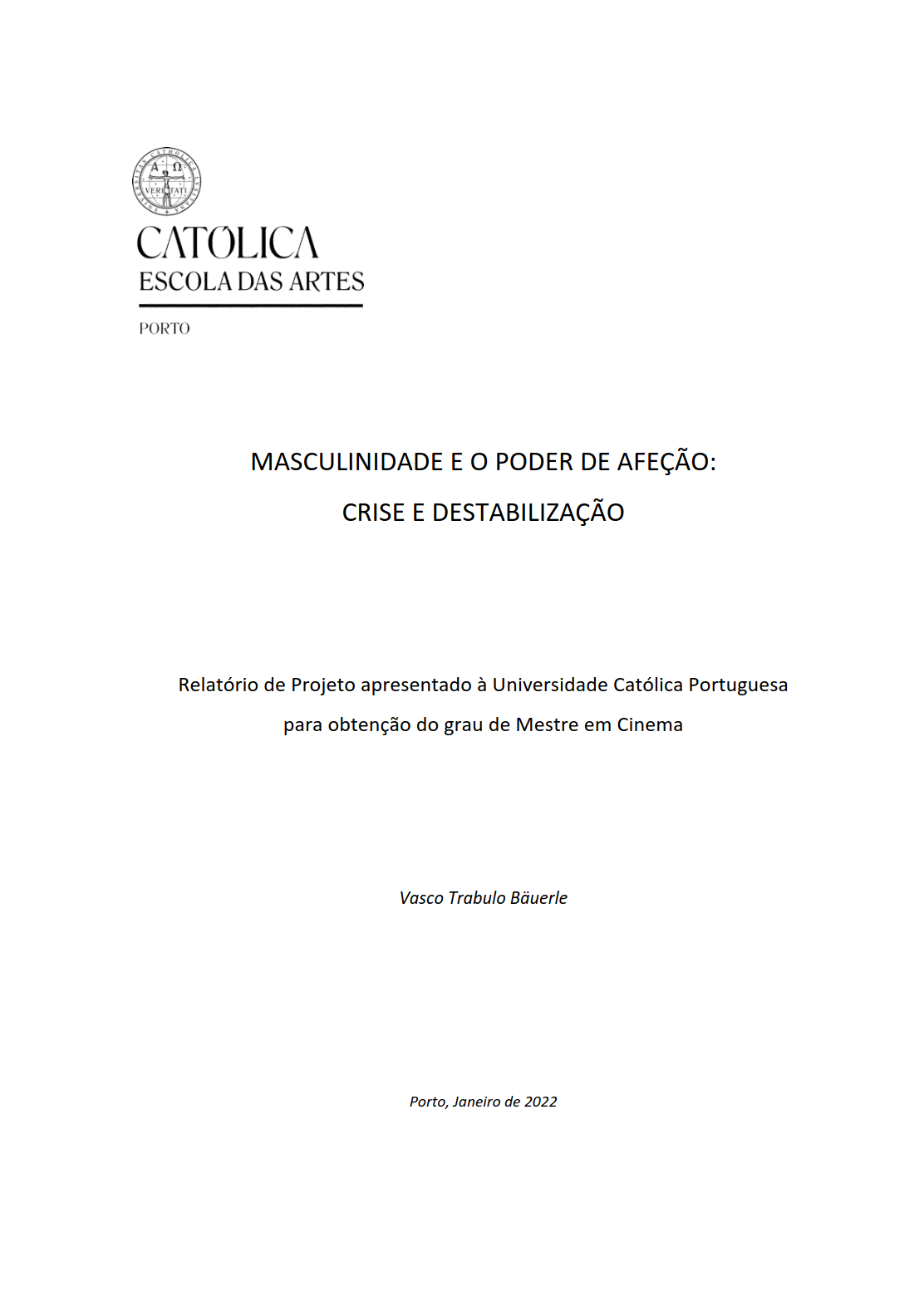
With this report, I wanted to explore the intersections and frictions between such broad concepts as masculinity and the cinema of sensation. I began by introducing the limitations of a definition of masculinity that still reflects violent and oppressive values that are the direct product of the patriarchal society in which we live. The cinema of sensation, of a fluid and ambiguous nature, was a tool I tried to use to explore how such a way of making cinema could open up the exploration of new territories, lines of flight and infinite possibilities. How it was possible to go beyond a closed definition of masculinity, to expand it to the point where it eventually dissolves into something bigger, beautiful and open. It was also a journey of my own. Reading my words now, I can still find reason and urgency in some, naivety in others. Still, it's a testament to the power of cinema, the moving image and the arts in general to destabilise, provoke and enable new and unimagined ways of seeing, creating and making worlds.
Selected biography.
Butler, J. (2006). Gender trouble: Feminism and the subversion of identity.
Foucault, M. (1982). The Subject and Power. Critical Inquiry. Vol. 8, No. 4, 777-795.
Kaufman, M. (1994). Cracking the armour: Power, pain and the lives of men.
Kennedy, B. M. (2000). Deleuze and cinema: The esthetics of sensation.
Río, E. (2012). Deleuze and the cinemas of performance: Powers of affection.